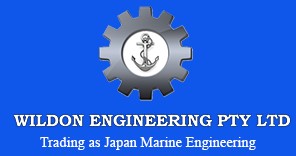6 Signs Your Ship’s Fuel Injection System is Failing
Blog | November 8th, 2022The marine fuel engine of a ship or boat produces thermal energy by burning fuel and transforming it into mechanical energy. This energy is then used for the main propulsion of the marine vessel from one port to another.
But to ensure that the marine fuel engine can work optimally, it must be equipped with the right set of components. One of these components is the fuel injection system.
A fuel injection system is a component responsible for providing the right amount of fuel at the right time. It atomises the fuel at high speeds and high pressures before spraying the resulting fuel into the engine cylinders. This system helps the marine vessel operate at high-speed levels without sacrificing efficiency. Now, if your ship’s fuel injection system manifests the following signs, you may have to service or replace it right away.
Overheating
One sign of a failing fuel injection system is overheating. This problem is often caused by the existence of defects in the component itself. Without mitigating these defects, they can eventually cause localised or complete overheating of the system, which can then lead to nozzle tip burns and increased smoke from the exhaust.
Overcooling
The fuel injection system must operate at the right temperatures for it to carry out its function well. Now, if its temperature drops significantly, it can easily affect the performance of the engine. It can also affect fuel viscosity, which may lead to improper combustion in the cylinder. Failure to resolve this issue will only lead to the corrosion of the nozzle tip.
Poor Fuel Atomisation
Another sign of a failing fuel injection system is poor fuel atomisation. The atomisation of the fuel should be done optimally to ensure that the engine can perform optimally throughout its operations. Now, with poor fuel atomisation, your marine vessel is expected to generate too much noise. It can also lead to high exhaust temperature, poor combustion, after burning, and low peak pressure. This problem is caused by a faulty fuel pump and poor fuel quality.
Valve Seizure
Valve seizure often happens when the needle valve has been shut partly, opened completely, or stuck in a closed position. When one of these things happens, it would eventually lead to a leaky injection system, minimised fuel for combustion, and early ignition. This issue can also lead to the combination of fuel oil and exhaust gas. As valve seizure continues, it will only cause your fuel injection system and other components to overheat in various areas.
Poor Penetration
Poor penetration in the fuel injection system will only result in late combustion, improper combustion, after burning, and high exhaust temperature. Alternatively, excessive penetration may only lead to high thermal stress on the liner and poor cylinder lubrication. Failure to optimise the penetration in the said system can be challenging in the long run.
Increase in Needle Clearance
Your fuel injection system can also become faulty if its needle clearance has been excessive. A significant increase in the needle clearance can lead to abrasive wear on the said system. This issue can be caused by poor filtration and a mixture of exhaust gas in fuel due to a leaky injector or seizure.
To gain access to quality fuel injection systems, you can contact us at Wildon Engineering.
Optimized by NetwizardSEO.com.au
Recent Posts
- Yanmar Marine Compressors: Applications in Engine Starts, Valves, and Safety Systems
- Water vs Oil in Stern Tube Bearings: The Cost & ESG Truth Shipowners Can’t Ignore
- Yanmar Turbochargers: How Correct Spec-Matching Supports Lower SFOC and Prevents Surge
- Yanmar Diesel Generators: Planned vs Predictive Maintenance Strategies for Remote Operations
- Mareflex SOLAS Marine Tapes: Safety Applications on Marine Vessels
- Yanmar Propulsion Systems: FPP vs CPP Propellers for 6EY and 6N Series Fuel Efficiency
- Mitsubishi K.K. Purifier Separator: The Key to Cleaner Fuel and Smoother Operations
- Kemel Air Seal Retrofits: Leak-Free Stern Tube Seals and Reduced Lube-Oil Risk
- Yanmar Auxiliary Generators: Sizing for Reefers, Hotel Loads, and Dynamic Positioning Systems
- Water Lubricated Stern Tube Bearing (EVR): Proven Technology for Smooth and Quiet Operations
